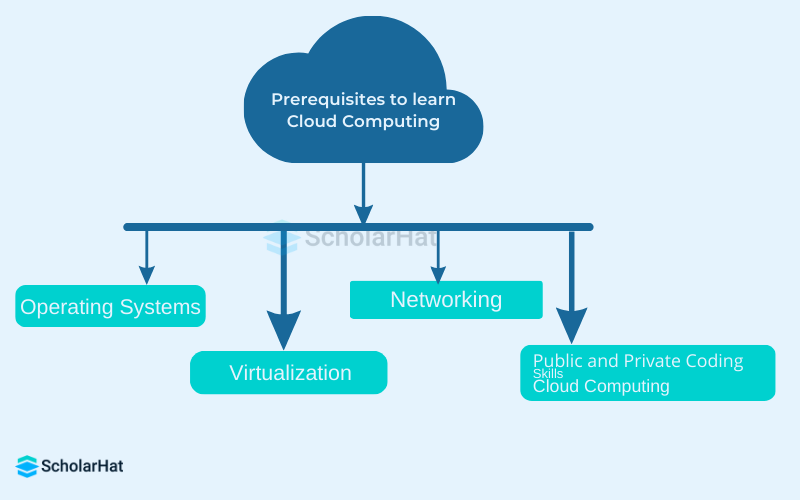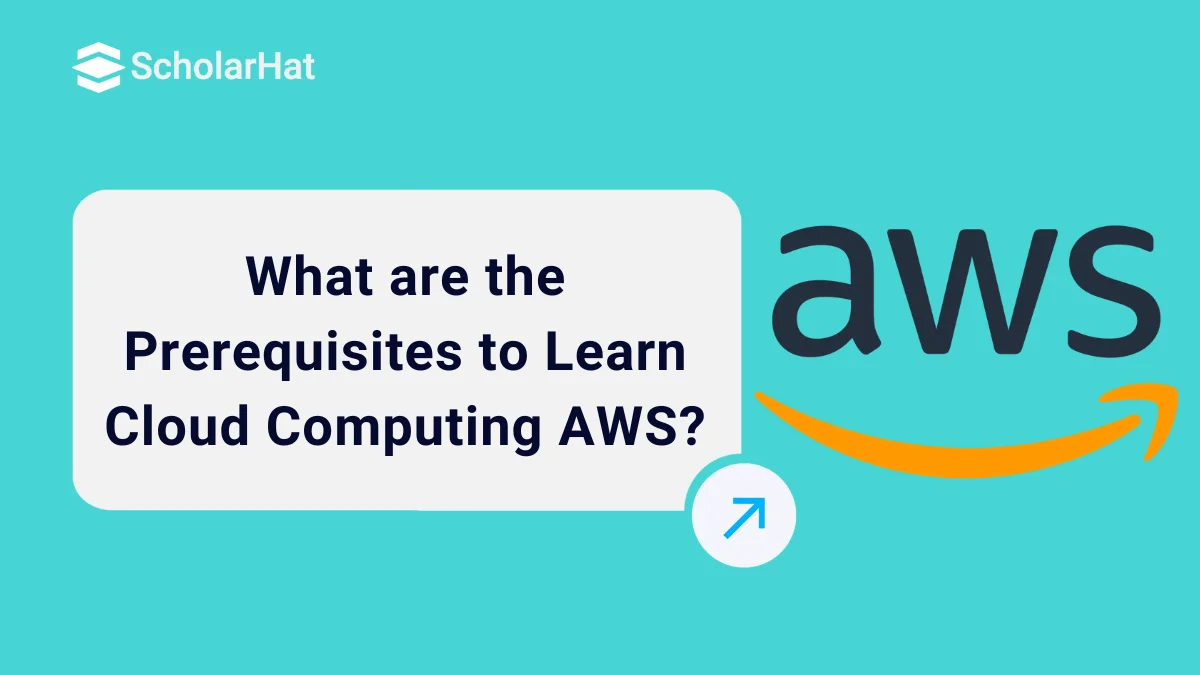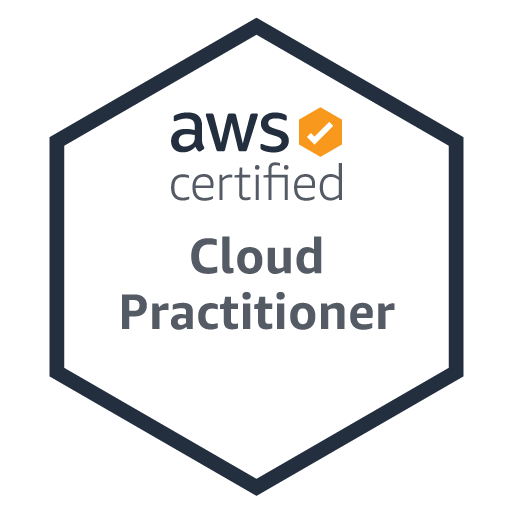13
FebWhat are the Prerequisites to Learn Cloud Computing AWS ?
Prerequisites to Learn Cloud Computing AWS: An Overview
"Hello there! Are you prepared to jump into AWS and cloud computing? Awesome! Before you begin, make sure you're familiar with basic technology such as networks and servers. A little coding knowledge is also nice. You've got the fundamentals down pat! Now, let's conquer the cloud with AWS Certification Training and rock it together!"What is AWS?
Amazon Web Services (AWS) is a thorough and secure cloud services platform offered by Amazon. The AWS Cloud, sometimes known as the Amazon Cloud, provides organizations with infrastructure services such as storage, processing power, networking, and databases, allowing them to scale and grow. Amazon provides on-demand services with a pay-as-you-go pricing policy.
What Can You Do with AWS?
- Run applications & websites.
- Data Storage in the Cloud.
- Machine Learning is used to analyze data.
- Delivering Content Over a Global Network.
- Protect Your Data & Applications.
- Collaborate on projects with others.
- In a sandbox environment, you can create and test programs.
- Virtual networks can be created and managed.
- Construct serverless applications.
Is AWS Easy to Learn?
The ease with which you can learn AWS is determined by your prior experience. It will be easier to learn if you have a background in IT or cloud computing. Even if you're a complete beginner, there are lots of tools to get you started, such as AWS manuals, online courses, and tutorials. Anyone can learn AWS with dedication and the correct resources.
What are the prerequisites to learning AWS?
While there are no formal prerequisites for learning AWS, having a basic awareness of some fundamental concepts will considerably improve your learning experience and make the process go more smoothly. Here's a breakdown of the different categories:

Basic understanding of Computers
Basic computer knowledge involves knowledge of hardware (CPU, RAM, storage), software (operating systems, apps), and networking (IP addresses, DNS, protocols).
CLI (Command-Line Interface)
When interacting with AWS services, you should be comfortable traversing folders, manipulating files, and running commands using a CLI such as Bash or PowerShell.
Fundamentals of Networking
Understanding fundamental networking principles such as IP addresses, subnetting, routing, and various protocols (TCP/IP) can help you understand how AWS services interact with one another and with the internet.
Basic knowledge of Operating Systems
When installing applications on AWS, familiarity with operating systems such as Windows, Linux, and macOS will be beneficial.
Programming Languages
Knowing languages like Python, Java, or JavaScript might be useful for interacting with AWS APIs and developing applications on the platform.Scripting Languages
Bash scripting or PowerShell can be useful for automating AWS infrastructure operations.
Database Technologies
Understanding database technologies such as MySQL or PostgreSQL will be beneficial if you intend to use AWS database services.
Cloud Concepts
Understanding cloud computing concepts such as scalability, elasticity, & pay-as-you-go can help you comprehend the benefits of using AWS.
Public Cloud Computing in AWS
- Public cloud computing is a flexible and cost-effective method in which IT resources like servers, networking, and storage are made available as virtual resources through the Internet.
- Rather than owning and maintaining their physical infrastructure, organizations can rent these resources from providers such as AWS, paying only for what they use.
Private Cloud Computing in AWS
- Private cloud computing provides an organization with a private environment within a shared physical infrastructure.
- This provides organizations with increased data and security control, making it suited for sensitive workloads.
- While AWS offers various public cloud services, some of its offerings are designed exclusively for private cloud requirements.
AWS Certifications
Now let’s look at the prerequisites required for each of the AWS certifications:AWS Certified Cloud Practitioner (Foundational Certification)
- Fundamental knowledge of IT services and solutions
- Understanding of how IT solutions and services are implemented in the AWS platform.
- Minimum 6 months experience in AWS cloud in domains like technical, sales, purchase, managerial, or financial roles.
AWS Certified Developer (Associate)
- Skill and knowledge in writing code that can access AWS applications from the custom business application through the AWS software
AWS Certified Solutions Architect (Associate)
- Minimum 1 year of experience in designing and setting up applications on the AWS platform.
- Skill in minimum 1 high-level programming language
- Potential to recognize the requirements of an application, recognize the best practices for security of the AWS application, and set up hybrid systems through AWS components.
AWS Certified SysOps Administrator (Associate)
- At least 1 year of experience in operating and dealing with applications set on the AWS platform.
- How to operate, provision, and sustain AWS-based systems.
AWS Certified Solutions Architect (Professional)
- Minimum 2 years of experience in designing and setting up AWS-based cloud architecture.
- Understanding practices associated with implementing the architecture of AWS application.
- Skill in a high-level programming language.
AWS Certified DevOps Engineer (Professional)
- At least 2 years of experience in provisioning, handling, and running applications that are deployed inside the AWS environment
- Coding experience in any high-level programming language
- Overview of automation and testing through programming and scripting languages
AWS Certified Security (Specialty)
- Minimum 5 years of experience working as an IT security employee designing and executing security solutions.
- Minimum 2 years of experience in securing AWS workloads
- Basic knowledge of how to use security controls for AWS workloads.
AWS Certified Big Data (Specialty)
- At least 5 years of experience working in the data analytics domain
- Experience in how to design and develop a scalable, robust, and profitable architecture for data processing.
- Familiarity with how to define and build AWS big data services
AWS Certified Advanced Networking (Specialty)
- At least 5 years of experience in building and executing network solutions
- Familiarity with technologies and concepts used in AWS networking
Summary
Learning AWS requires a solid understanding of fundamental computer concepts, CLI usage, networking fundamentals, operating systems, & cloud computing concepts. Additional experience in programming languages, scripting languages, database technologies, and particular certifications may be necessary depending on your intended AWS path.
FAQs
- Essential AWS Cloud Architect Skills
- Most architects have a background in software development, such as Java, Python, or C#.
- Networking.
- Fundamentals of data storage.
- The basis of security.
- Choosing an AWS service.
- Cloud-specific patterns and technology.
- Communication.
Take our Aws skill challenge to evaluate yourself!

In less than 5 minutes, with our skill challenge, you can identify your knowledge gaps and strengths in a given skill.










